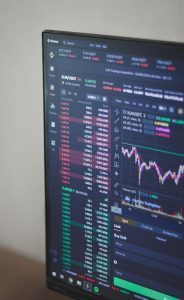Forex trading, also known as foreign exchange trading or FX trading, is the act of buying and selling currencies with the aim of making a profit. Forex trades are conducted through a global network of financial institutions, with the majority of trading taking place in the world’s major financial centers like London, New York, Tokyo, and Hong Kong. In this article, we will explore what forex trades are, how they work, and what factors affect their value.
How Forex Trades Work
Forex trades involve buying one currency while simultaneously selling another currency. When traders buy a currency, they hope that its value will increase relative to the currency they sold. If the value of the currency they bought does increase, they can sell it at a higher price and make a profit. Conversely, if the value of the currency they bought decreases, they will incur a loss.
Forex trades are conducted in pairs, with each pair consisting of two currencies. For example, the EUR/USD pair consists of the euro and the US dollar. The first currency in the pair is called the base currency, and the second currency is called the quote currency. When traders buy the EUR/USD pair, they are buying euros and selling US dollars. Conversely, when they sell the EUR/USD pair, they are selling euros and buying US dollars.
Forex trades can be conducted through a broker or a financial institution. Traders can access the forex market 24 hours a day, five days a week, making it one of the most accessible and liquid markets in the world. The forex market is decentralized, meaning that there is no central exchange where all trades take place. Instead, trades are conducted through an electronic network of banks and other financial institutions.
Factors Affecting Forex Trades
There are several factors that can affect the value of currencies and, therefore, the profitability of forex trades. Some of the most significant factors include:
Economic indicators: Economic indicators such as inflation, GDP, and employment rates can have a significant impact on currency values. Positive economic indicators can lead to an increase in currency values, while negative economic indicators can lead to a decrease in currency values.
Interest rates: Interest rates can also have a significant impact on currency values. Higher interest rates can make a currency more attractive to investors, leading to an increase in its value. Conversely, lower interest rates can make a currency less attractive to investors, leading to a decrease in its value.
Political events: Political events such as elections, wars, and natural disasters can also affect currency values. For example, a country that is experiencing political instability may see a decrease in the value of its currency.
Market sentiment: Market sentiment, or the overall mood of traders and investors, can also affect currency values. If investors are optimistic about a currency, its value may increase. Conversely, if investors are pessimistic about a currency, its value may decrease.
Conclusion
Forex trades are a popular way for traders to make a profit by buying and selling currencies. Forex trades involve buying one currency while simultaneously selling another currency, with the aim of profiting from changes in currency values. Factors that can affect currency values include economic indicators, interest rates, political events, and market sentiment. Traders can access the forex market 24 hours a day, five days a week, making it one of the most accessible and liquid markets in the world.






